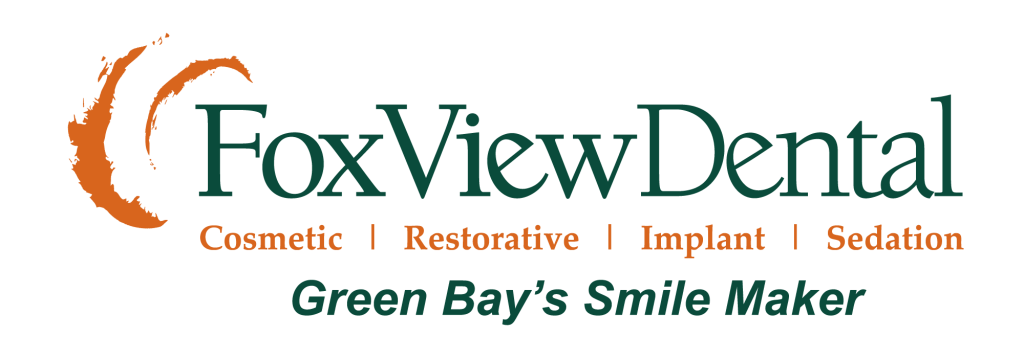Experience Stress-Free Dental Care with Comfortable Oral Sedation
Do you dread going to the dentist due to anxiety or fear? You’re not alone in this struggle. Millions of people worldwide experience dental anxiety, causing them to avoid necessary dental care and potentially compromising their oral health. At Fox View Dental, Dr. Chad Yenchesky understands these concerns and offers oral sedation dentistry to help patients feel relaxed and comfortable during their dental appointments in De Pere.
Oral conscious sedation can transform your dental experience from a source of stress into a calm, manageable appointment. Whether you need a simple dental cleaning or more complex treatment, Dr. Yenchesky’s dental sedation options can make a world of difference for patients who would otherwise avoid the dentist’s chair.
To learn more about how oral sedation can help you feel relaxed during dental treatment, call Fox View Dental today at (920) 336-4201. Dr. Yenchesky proudly serves patients from Green Bay, Allouez, Ashwaubenon, and Howard, WI, providing compassionate sedation dentistry to help anxious patients receive the dental care they need.
How Fox View Dental Keeps You Relaxed

We’re here to make your visit as comfortable and stress-free as possible. If there’s anything we can do to help you relax, please let us know, and we’ll be happy to accommodate you.
Oral Conscious Sedation Dentistry
Oral conscious sedation involves administering carefully selected medications to help patients feel relaxed and comfortable during dental appointments while remaining awake and able to respond to instructions. This approach allows Dr. Chad Yenchesky to perform necessary dental procedures while keeping patients calm and anxiety-free throughout their visit to our De Pere office.
Unlike general anesthesia, oral sedation allows patients to maintain consciousness and the ability to communicate with the dental team when needed. This conscious state provides an ideal balance between comfort and safety, allowing Dr. Yenchesky to monitor patient responses while providing the anxiety relief needed for successful treatment.
How Oral Conscious Dental Sedation Works

These medications work by targeting neurotransmitter systems in the brain that control anxiety, fear, and stress responses. By temporarily dampening these responses, patients can remain calm and comfortable while receiving necessary dental care. The sedative effects typically begin within 30 to 60 minutes of taking the medication, reaching peak effectiveness during the dental procedure.
The beauty of oral sedation lies in its predictability and safety profile when administered by trained professionals like Dr. Chad Yenchesky. Patients often report feeling deeply relaxed, with many having little to no memory of the dental procedure afterward, which can be particularly beneficial for those with severe dental anxiety.
Types of Oral Sedatives Available
Dr. Chad Yenchesky utilizes several categories of oral sedatives, each with unique properties and benefits:
Benzodiazepines
These medications are commonly used for oral sedation due to their excellent anxiolytic and sedative properties. Benzodiazepines possess a considerable safety margin, meaning they have a lower risk of causing dangerous side effects compared to other sedative options. Dr. Yenchesky often selects these medications for their predictable effects and proven safety record.
Non-Benzodiazepines
These newer medications provide similar anxiety-reducing effects to benzodiazepines but may have fewer side effects and a lower risk of dependency. They can effectively reduce anxiety and promote relaxation during dental procedures, making them a valuable alternative for certain patients in Dr. Chad Yenchesky’s care.
Antihistamines
While primarily used to treat allergies, certain antihistamines can also serve as mild sedatives to help reduce anxiety and induce relaxation. Although their sedative effects may not be as potent as other options, they can provide valuable mild sedation for patients requiring minimal anxiety relief.
Before your dental treatment, Dr. Chad Yenchesky will explain which type of oral sedative he recommends for your specific situation and answer any questions you may have about the medication.
The Comprehensive Oral Sedation Process
Pre-Procedure Consultation and Planning

Dr. Yenchesky will also discuss the planned dental treatment in detail, providing clear explanations of what to expect during your appointment. He may perform a visual examination of your oral health and review your dental history to develop the most appropriate sedation plan for your individual circumstances.
During Your Treatment Appointment
Throughout your dental procedure, Dr. Chad Yenchesky and his experienced team closely monitor your vital signs to keep you comfortable and safe. They use advanced monitoring equipment to track your pulse, blood pressure, and oxygen levels, allowing them to respond quickly to any changes in your condition.
The team at Fox View Dental takes numerous measures to create a tranquil environment during your treatment. This may include:
- Comfortable positioning with supportive cushions and blankets
- Calming background music to promote relaxation
- Gentle lighting that reduces stress and anxiety
- Continuous monitoring of your comfort level throughout the procedure
- Pain management techniques to complement the sedation effects
Post-Procedure Recovery and Care
After your dental procedure, you may feel groggy or experience mild side effects from the oral sedation. Dr. Chad Yenchesky requires that you arrange for a responsible adult to accompany you home after your appointment, as your ability to drive or make important decisions may be temporarily impaired.
The effects of oral sedation typically dissipate within a few hours, though some patients may feel drowsy for the remainder of the day. Dr. Yenchesky provides detailed post-procedure instructions to help you recover comfortably and safely at home.
Oral vs. IV Sedation: Understanding the Difference
While both methods achieve relaxation during dental procedures, oral sedation offers a gentler, more gradual experience compared to IV sedation’s immediate effects.
Depth and Control
Oral sedation produces mild to moderate sedation—you’ll remain conscious and responsive throughout your procedure, though deeply relaxed with reduced anxiety. IV sedation can range from moderate to deep sedation, sometimes approaching unconsciousness, with the dentist able to adjust levels in real-time.
The Experience
With oral sedation, patients often describe feeling drowsy and calm while maintaining awareness of their surroundings. Many experience partial amnesia of the procedure. The onset is gradual (30-60 minutes), creating a smooth transition into relaxation without the stark “on-off” sensation some patients find unsettling with IV methods.
Recovery
Oral sedation’s effects taper off slowly over several hours, requiring you to arrange transportation home and avoid driving for 24 hours. You may feel groggy for the remainder of the day. IV sedation can wear off more quickly once stopped, though you’ll still need an escort and rest. Both require similar post-procedure precautions, but oral sedation’s extended drowsiness means planning for a restful day afterward.
Potential Side Effects and Safety Considerations
While oral conscious sedation is generally very safe when administered by trained professionals like Dr. Chad Yenchesky, patients should be aware of potential side effects. These effects are typically mild and short-lived, resolving within a few hours after the procedure.

- Drowsiness that can last several hours after treatment
- Mild dizziness when standing or moving quickly
- Temporary nausea that usually resolves quickly
- Dry mouth that can be relieved with small sips of water
- Memory gaps regarding the dental procedure itself
Dr. Chad Yenchesky takes special precautions with patients who have certain medical conditions. Patients with cardiovascular disease, respiratory issues, sleep apnea, or other health concerns require individualized evaluation to determine if oral sedation is appropriate for their situation.
Special Patient Populations and Considerations
Dr. Chad Yenchesky provides customized sedation approaches for various patient populations who may require special attention:
Elderly Patients
Older adults may be more sensitive to sedative medications and require adjusted dosages. Dr. Yenchesky carefully evaluates each elderly patient’s medical history, current medications, and overall health status to determine the safest and most effective approach to sedation.
Patients with Special Needs
Individuals with developmental or cognitive disabilities may benefit significantly from oral sedation to help them remain calm and cooperative during dental treatment. Dr. Chad Yenchesky works closely with caregivers to develop appropriate sedation plans for these patients.
Medically Complex Patients
Patients with multiple medical conditions or those taking various medications require careful evaluation before receiving oral sedation. Dr. Yenchesky reviews all medical information thoroughly and may consult with physicians when necessary to provide the safest possible care.
Insurance Coverage and Financial Considerations
Insurance coverage for oral sedation dentistry varies significantly depending on your specific dental plan and the medical necessity of sedation for your treatment. Some insurance plans provide coverage when oral sedation is deemed medically necessary due to severe dental anxiety or special medical circumstances.
Dr. Chad Yenchesky’s administrative team works diligently with insurance providers to understand your coverage and maximize your benefits. They can help you navigate insurance requirements and provide clear explanations of any out-of-pocket costs associated with your sedation treatment.
Fox View Dental offers various payment options and financing plans to make oral sedation accessible for patients who need this service. The team believes that anxiety should never prevent patients from receiving necessary dental care and works to find solutions that fit within your budget.


